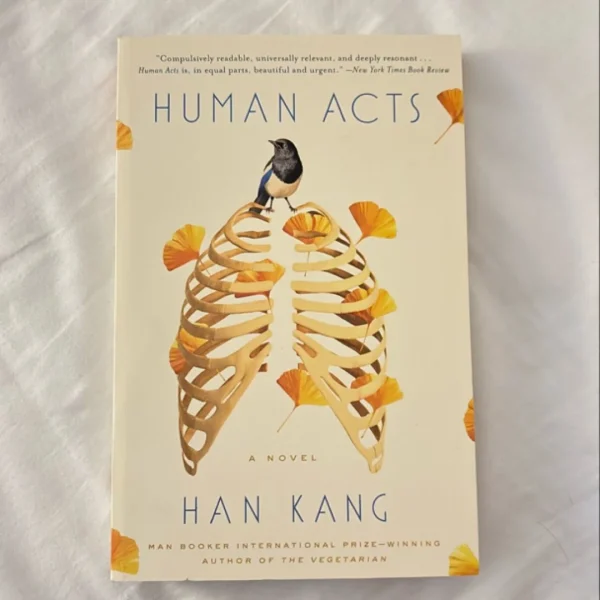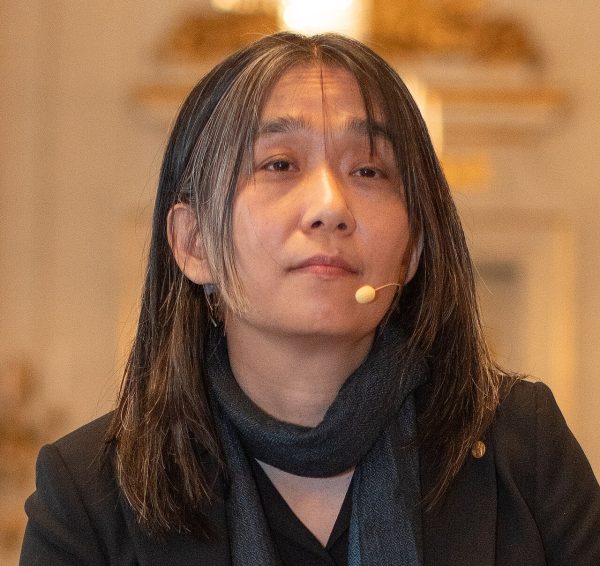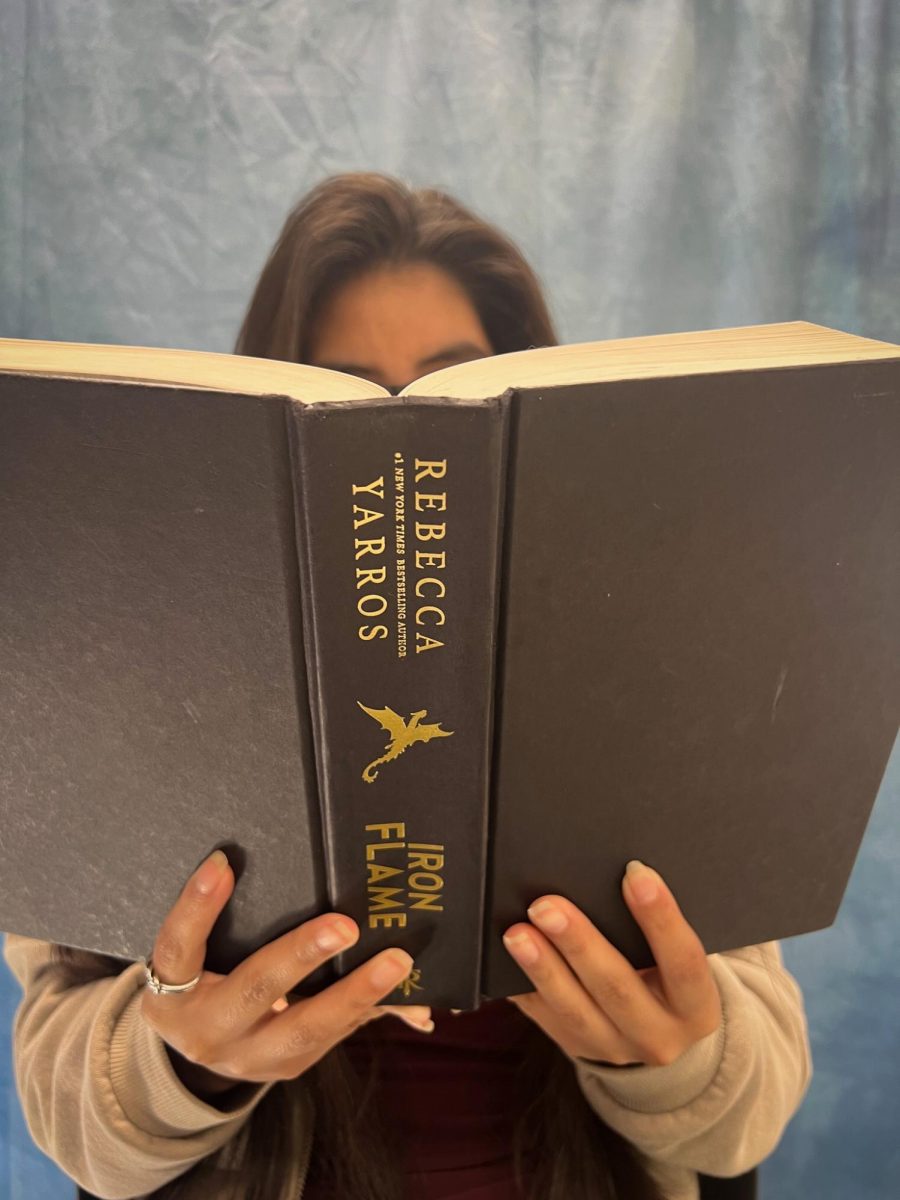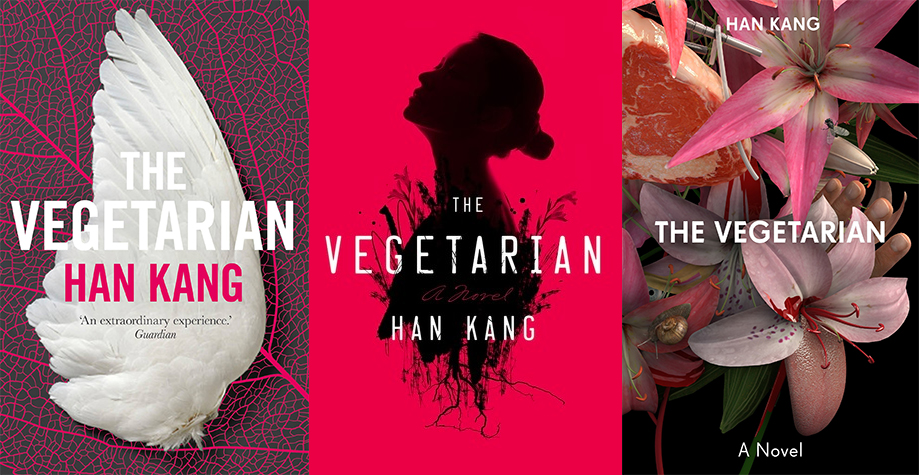Whether or not you have heard of Han Kang depends on many factors. If you haven’t, it’s probably because you haven’t kept up with international contemporary authors. If you have, it’s either because you follow the Nobel Prize recipients or because you have impeccable taste in literature—because even if you do keep up with international authors, Han Kang likely wouldn’t be the first name to come to mind. However, once you hear about her, she becomes unforgettable. As the rest of her country, South Korea puts it: you fall victim to the “Han Kang Syndrome.”
Who is Han Kang?
Han Kang, born in Gwangju, South Korea, in 1970, is a writer from a literary family. Her father, Han Sung-won, is also a renowned author, best known for his 2002 book, Father and Son, in which he explores the social and political dynamics of Jangheung, a county on the southern coast of the Korean peninsula where he himself was born.
However, Kang’s literary descent should not be taken as the sole explanation for her success. In a 2016 interview, her father noted, “It used to be that Han Kang was known as Han Sung-won’s daughter, but now I’ve become Han Sung-won, the father of Han Kang.”
 Although the book that earned her the 2024 Nobel Prize in Literature is The Vegetarian (more on that later), one of her more recent books, Human Acts, published in 2014, is equally worth noting. It masterfully narrates and unapologetically exposes the atrocities of the Gwangju Uprising, the 1980 massacre in which the South Korean military dictator Chun Doo-hwan killed hundreds of pro-democracy protesters. The tragedy has long been denied and silenced by conservatives. In the words of her interviewer (and friend) from The Yale Review, Yung In Chae, Han Kang “[gives] names to the nameless and, likewise, voices to the voiceless.”
Although the book that earned her the 2024 Nobel Prize in Literature is The Vegetarian (more on that later), one of her more recent books, Human Acts, published in 2014, is equally worth noting. It masterfully narrates and unapologetically exposes the atrocities of the Gwangju Uprising, the 1980 massacre in which the South Korean military dictator Chun Doo-hwan killed hundreds of pro-democracy protesters. The tragedy has long been denied and silenced by conservatives. In the words of her interviewer (and friend) from The Yale Review, Yung In Chae, Han Kang “[gives] names to the nameless and, likewise, voices to the voiceless.”
What Book Earned Her the Nobel Prize?
The book that earned her the 2024 Nobel Prize in Literature was her 2007 psychological fiction novel, The Vegetarian. Simply put, it has been absorbed as a *postmodern allegory for women’s fight for power and freedom* and a much-needed critique of South Korean society—particularly the expectations placed on women to conform to rigid societal standards. Kang was awarded the Nobel Prize with the motivation: *“for her intense poetic prose that confronts historical traumas and exposes the fragility of human life.”*
Beyond the brilliance of The Vegetarian, I believe there are three additional reasons why Han Kang’s Nobel recognition is so significant—first, her age. Most Nobel Prize recipients, as many have pointed out, receive the honor in their twilight years—whether in terms of career or life. Han Kang, at just 55, has already cemented her literary legacy, proving that her work is not only important but transcendent. Second, she is the first Asian woman (and the first Korean writer) to receive the Nobel Prize in Literature, a groundbreaking achievement. And finally, according to multiple sources—including the aforementioned interviewer who became her friend—she embodies in real life the gentleness and humanity she so masterfully conveys in her books.
Why Didn’t She Attend the Nobel Prize Ceremony?
Although she was awarded the 2024 Nobel Prize in Literature, Han Kang did not attend the ceremony. Instead, she released a statement explaining that personal and health reasons prevented her from traveling to Sweden. While she has kept the details private, many believe that her decision aligns with her political and peace beliefs. When asked further about her lack of public celebration for their accomplishment, she cited the ongoing wars between Russia and Ukraine, as well as Israel and Palestine. Such was actually said by her father during a press conference that she did not attend.

A New Novel: We Do Not Part
Despite—or perhaps because of—her newfound global recognition, Han Kang remains as committed to her craft as ever. Her latest novel, We Do Not Part, continues her exploration of grief, memory, and human connection. The book, which weaves together themes of loss and resilience, has already been praised for its lyrical prose and emotional depth. As with all of her works, it promises to leave an indelible mark on those who read it.


















